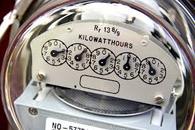

For those of you who may not have been able to attend one of the IUB Fall meetings, the IUB’s informational PowerPoint can be found on IAMU’s website by clicking here.
Disconnection rules can be found at 199 IAC 19.4(15) for natural gas and 199 IAC 20.4(15) for electricity.
If a gas or electric bill remains unpaid after 20 days, a 12-day disconnection notice can be sent. All utilities are required to include the “customer rights and responsibilities to avoid shutoff of electric service for nonpayment” with every disconnection notice. General Consumer information including the required customer rights and responsibilities notification for both gas and electric customers can be found on the IUB’s website. The customer may avoid disconnection by paying the outstanding amount of the bill or by entering into a payment plan agreement with the utility.
Residential customers are entitled to special protections. Disconnection of a residential customer may not take place on a weekend, holiday, or after 2:00 p.m. If the customer makes the payment, the utility must use reasonable efforts to turn the service back on that day. If service can’t be turned back on that day, the utility must do so by 11:00 a.m. the next day.
Disconnection of a residential customer is subject to special requirements from November 1 through April 1. If the customer might be eligible for low-income energy assistance or Weatherization funds, they must be given 12 days to apply. If the community action agency certifies within 30 days that they are eligible, then disconnection is prohibited for Nov. 1 through April 1. Customer payments should be encouraged, but are not required during the moratorium period.
If the temperature is forecast by the National Weather Service to go below 20 degrees or colder in the next 24 hours, a utility cannot disconnect a residential customer. If the premises are already posted and disconnection is delayed due to the temperature, a utility can proceed with disconnection when the temperature goes up. The IUB recommends that if disconnection is delayed more than a few days, a new 24-hour posting should be done.
There are specific rules for head of household who is a deployed military service member – disconnection cannot occur at the residence during deployment and within 90 days after the end of deployment. Disconnection of a residential customer must be postponed if the disconnection would present an especial danger to the health of any permanent resident of the premises.
A customer who defaults on a payment must be given an opportunity to pay the bill with a 12 month payment plan agreement. The IUB has stated that the agreement must be a minimum of 12 months. The customer can pay it off sooner, but should have the opportunity to have 12 months to pay it off. The utility must be reasonable and take into account a customer’s ability to pay. A utility can change the terms of the agreement by providing for a longer payoff or providing for a smaller amount due each month. Generally, dividing the amount owed by 12, and adding the current bill each successive month should suffice. The customer is allowed one late payment of up to 4 days beyond the due date without resulting in a defaulted payment agreement.
If a customer has defaulted on a payment plan agreement, the 12 day disconnection notice is not required. In that case, the utility may post the disconnection notice and give the customer 24 hours’ notice of disconnection.
A customer who defaults after having made a minimum of two consecutive payments under an initial payment plan agreement must be allowed to enter into a second payment plan.
For further information, please contact Julie Smith at IAMU, [email protected] or IUB Customer Service Coordinator, Jane Whetstone at [email protected].

 RSS Feed
RSS Feed
